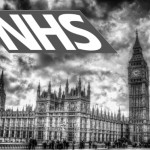 Anything as complex, large and difficult as a national health service will have problems. The greatest mistake anyone could make is to assume the NHS is itself the problem.
Anything as complex, large and difficult as a national health service will have problems. The greatest mistake anyone could make is to assume the NHS is itself the problem.
There have been a succession of particularly difficult and painful events lately: the Letby case, staff striking, reports of institutionalised bullying and a culture of blame, medical students saying they intend to leave the NHS on a massive scale, and sexual assaults on what appears to be a scale that is shocking even for an organisation as large as the NHS (though it must be said that any sexual assault is shocking for those affected and none should ever happen). Waiting lists continue to grow while GP appointments continue to be more difficult to obtain, for many. And so on.
All of these are serious. All of them are real. But all of them are solvable. All of them reflect a lack of investment, a culture made ever worse by under-investment, and a lack of planning on the part of government which, we suspect, is ultimately down to a belief that ‘the market will sort things out’. No. It won’t. Markets create inequalities. For a healthcare organisation, that means inequalities in health – and the NHS is supposed to be about overcoming that. How many times must we hear about ‘record levels of spending on health’ when that is said against a backdrop of YEARS of under-investment and fragmentation? How long before the systemised madness of trying to run a national health service alongside a largely privatised social-care service is admitted to, and addressed? How many lives must we see shortened before the short-sightedness of the long-term failure to invest is apparent to most, as the British public continues to support the idea of an NHS but grows increasingly frustrated or downright worried about what it is being allowed to become? And it is a matter of choice. The public still choose to have healthcare free at the point of delivery, even as more and more people opt to pay to jump the lengthening queue or at least find out what is wrong with them. Political choice.
Getting this right, or at least stopping it from getting worse and starting to get a great deal better, will take hard political choices, notably over funding. More tax may well be needed. But the public do support that, as long as it would be to see the NHS healthy again. The question is, will this government find the courage to say so? Or must we continue to witness the painful collapse, in a tragic and cruel parody of a growing number of hospital buildings blighted with RAC concrete, of all that we hold good in healthcare in this country?

No comments yet.